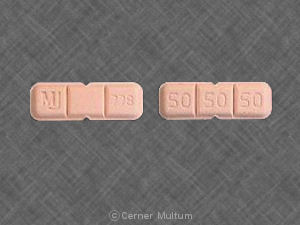Desyrel Dividose Interactions
There are 678 drugs known to interact with Desyrel Dividose (trazodone), along with 8 disease interactions, and 1 alcohol/food interaction. Of the total drug interactions, 139 are major, 524 are moderate, and 15 are minor.
- View all 678 medications that may interact with Desyrel Dividose
- View Desyrel Dividose alcohol/food interactions (1)
- View Desyrel Dividose disease interactions (8)
Most frequently checked interactions
View interaction reports for Desyrel Dividose (trazodone) and the medicines listed below.
- Abilify (aripiprazole)
- acetaminophen
- Adderall (amphetamine / dextroamphetamine)
- alprazolam
- Ambien (zolpidem)
- Ambien CR (zolpidem)
- amphetamine / dextroamphetamine
- aripiprazole
- Asendin (amoxapine)
- Ativan (lorazepam)
- BuSpar (buspirone)
- Catapres (clonidine)
- clonidine
- Cymbalta (duloxetine)
- Depakote (divalproex sodium)
- Effexor XR (venlafaxine)
- Flexeril (cyclobenzaprine)
- Klonopin (clonazepam)
- Lamictal (lamotrigine)
- Lasix (furosemide)
- Lexapro (escitalopram)
- Librium (chlordiazepoxide)
- lorazepam
- Lunesta (eszopiclone)
- Phenergan (promethazine)
- Prozac (fluoxetine)
- Seroquel (quetiapine)
- Valium (diazepam)
- Vistaril (hydroxyzine)
- Vitamin D3 (cholecalciferol)
Desyrel Dividose alcohol/food interactions
There is 1 alcohol/food interaction with Desyrel Dividose (trazodone).
Desyrel Dividose disease interactions
There are 8 disease interactions with Desyrel Dividose (trazodone) which include:
- angle closure glaucoma
- mania
- seizures
- suicidality
- cardiovascular disease
- hyponatremia
- hypotension
- renal/liver disease
More about Desyrel Dividose (trazodone)
- Desyrel Dividose consumer information
- Compare alternatives
- Reviews (2)
- Drug images
- Latest FDA alerts (3)
- Side effects
- Dosage information
- During pregnancy
- Drug class: phenylpiperazine antidepressants
- Breastfeeding
Related treatment guides
Drug Interaction Classification
| Highly clinically significant. Avoid combinations; the risk of the interaction outweighs the benefit. | |
| Moderately clinically significant. Usually avoid combinations; use it only under special circumstances. | |
| Minimally clinically significant. Minimize risk; assess risk and consider an alternative drug, take steps to circumvent the interaction risk and/or institute a monitoring plan. | |
| No interaction information available. |
See also:
Further information
Always consult your healthcare provider to ensure the information displayed on this page applies to your personal circumstances.


